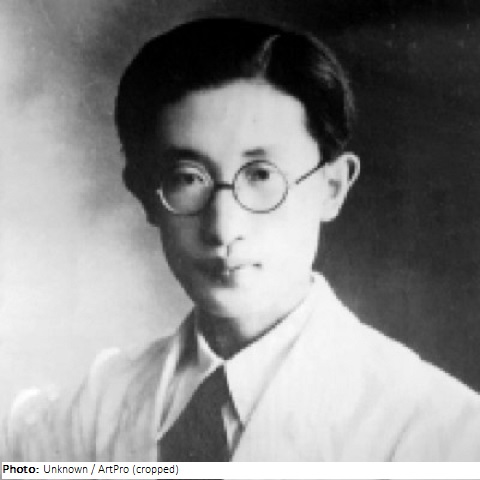Sun Zongwei

Biographical information
| Roles | Competed in Olympic Games |
|---|---|
| Sex | Male |
| Full name | Sun•Zongwei |
| Used name | Sun•Zongwei |
| Name order | Oriental |
| Original name | 孙•宗慰 |
| Other names | 孫宗慰, Sun Tsong-Wei |
| Born | July 1912 in Changzhou, Jiangsu (CHN) |
| Died | May 1979 |
| NOC |  People's Republic of China People's Republic of China |
Biography
Zongwei Sun was a student of the famous Chinese painter Xu Beihong at the Department of Fine Arts of the National Central University of Nanjing from which he graduated in 1938. Subsequently, he was a war painter in the war against Japan. In the early 1940s, Sun was involved in the restoration of the ancient Mogao Caves near Dunhuang, now a UNESCO World Heritage Site. He also worked as assistant teacher and associate professor in Nanjing and Beijing. After World War II, he was invited to Europe and spent several years there together with the other Chinese competitors at the 1948 art contests. After returning to China, Sun was appointed Professor at the Central Academy of Drama, where he contributed to the development of stage design in China. During the Cultural Revolution (1967-76), his style was considered “reactionary” and many of his works and manuscripts were destroyed.
In his early years, Sun developed the technical virtuosity that was typical for the so-called Nanjing School. He later returned to a more traditional style with Buddhist traditional motives and became a pioneer of modern art, depicting ethnic minorities. At least two of his kakemonos (scroll paintings) are titled “Tibetan dance”. The one depicted in the catalog of the 1948 exhibition was painted in 1945 in ink and color on paper in the format 81.5 x 38.6 cm. The works are part of a collection entitled The Life of the Mongols and Tibetans that was created in the years leading up to his stay in Britain.
Results
| Games | Discipline (Sport) / Event | NOC / Team | Pos | Medal | As | |
|---|---|---|---|---|---|---|
| 1948 Summer Olympics | Art Competitions |  CHN CHN |
Sun Zongwei | |||
| Painting, Graphic Arts, Open (Olympic) |